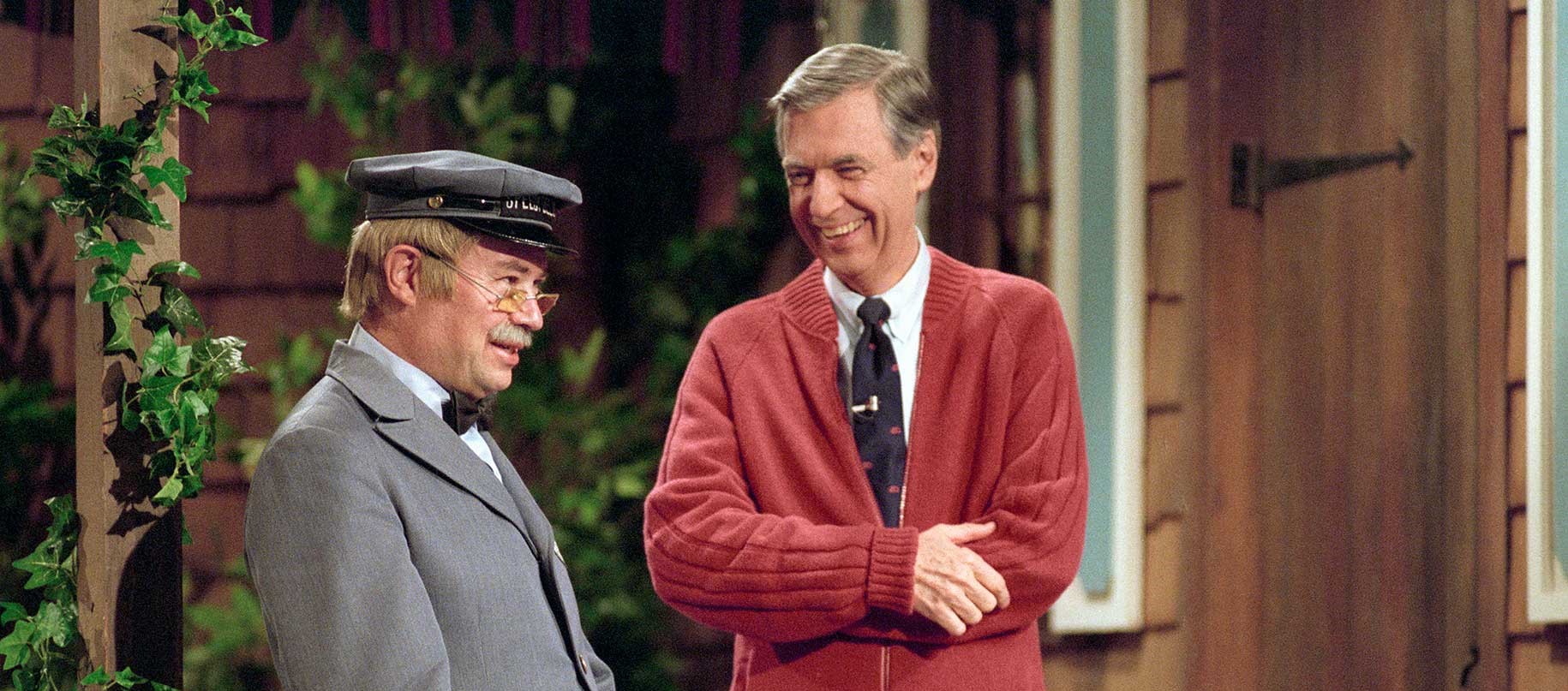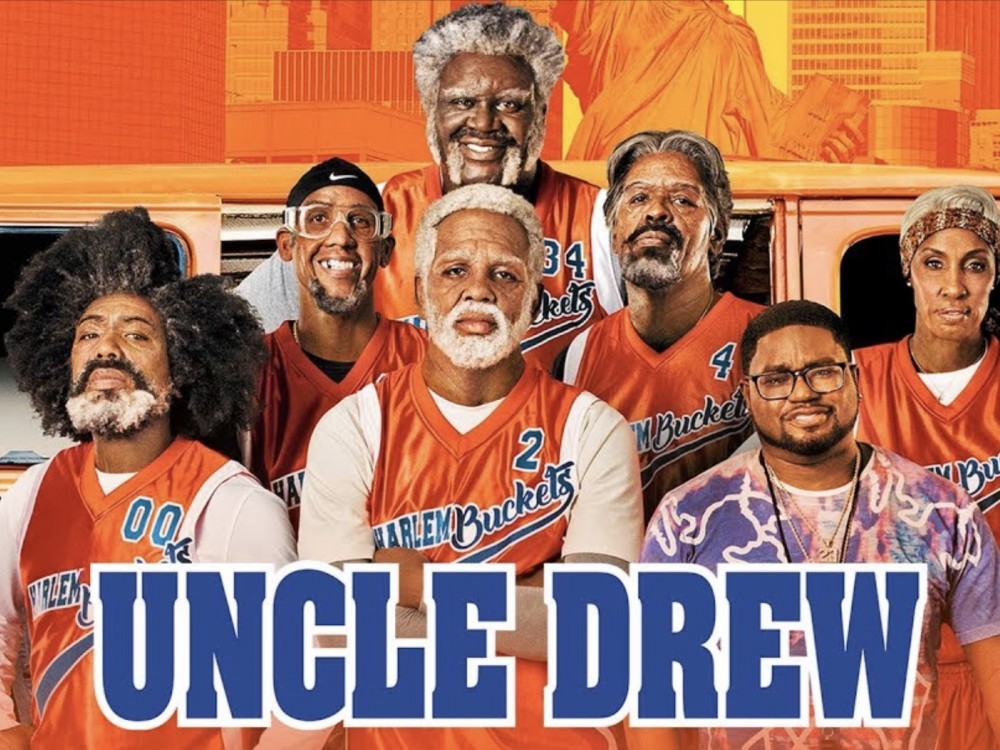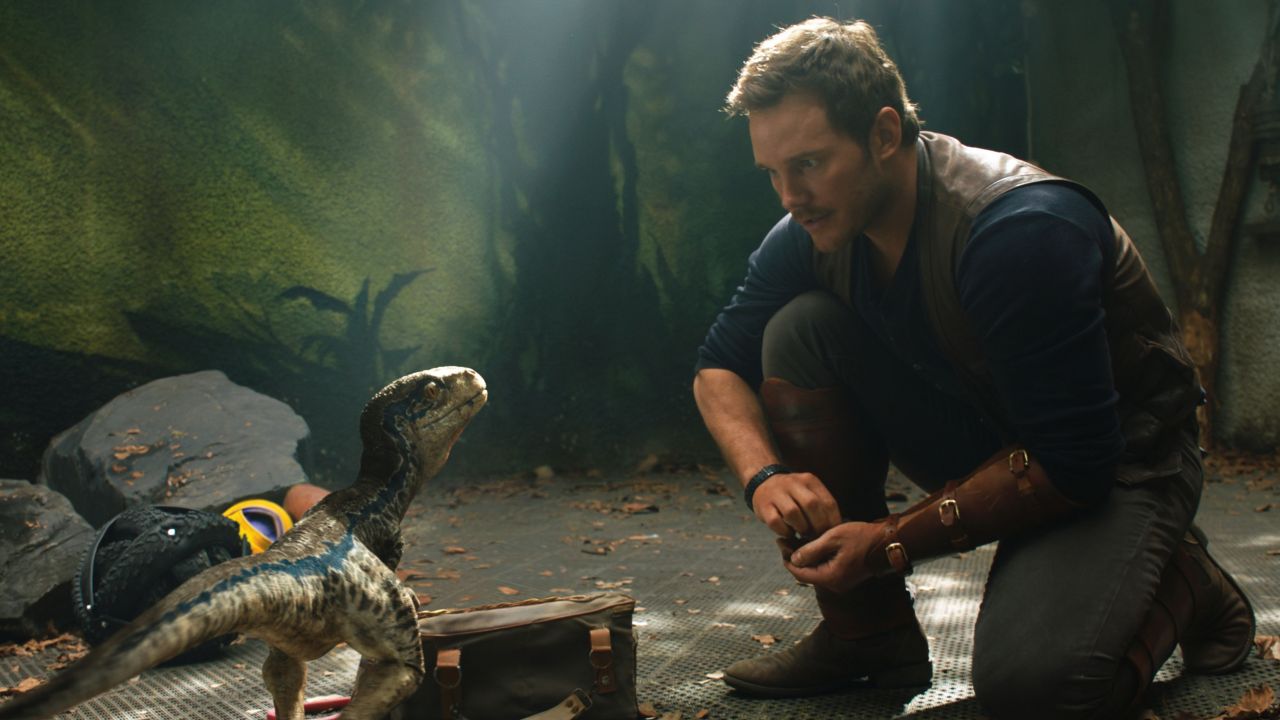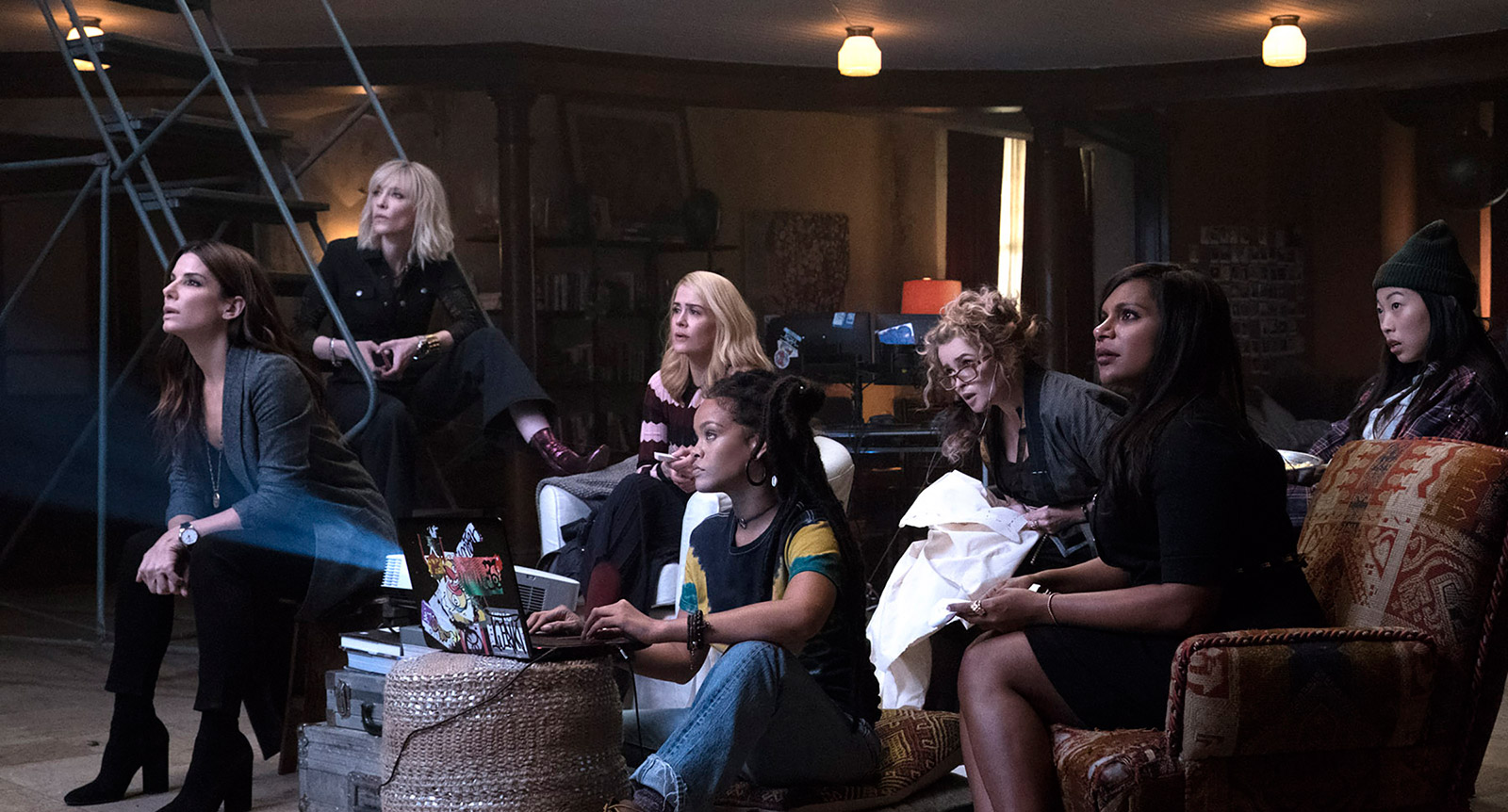
by Michael Foust | Jul 5, 2018
Editor’s note: This monthly series, “5 Family-Friendly Things,” spotlights five family-friendly entertainment choices on DVD, streaming or television.
There was a time I enjoyed watching the news, perusing Twitter and scanning Facebook.
No longer.
Those days are long gone due to a culture that has forgotten how to disagree without being disagreeable. Friendly dialogue has been replaced on those platforms with a cesspool of shouting and endless arguments – and it’s affecting every part of our culture.
Perhaps we need to go back to the basics, beginning with how to have conversations and make friends. Perhaps a visit to Mister Rogers’ Neighborhood would help.
The man behind the iconic show – Fred Rogers – would have been 90 this year. He passed away in 2003 but is being remembered in 2018 with a theatrical documentary (Won’t You Be My Neighbor?). Additionally, Tom Hanks is playing Rogers in an upcoming movie.
But did you know that more than 100 episodes of Mister Rogers’ Neighborhood are already streaming on Amazon Prime? It’s much-needed television for our children, but it’s helpful TV for adults, too.
Mister Rogers’ Neighborhood fills the No. 1 position on this month’s edition of “5 Family-Friendly Things.”
In what other television show can you learn how to forgive others, how to make orange juice, and how to tie your shoes, too?
Rogers did not discuss his faith explicitly on his program but, nevertheless, wanted it to be his “ministry” to the country. He was an ordained Presbyterian Church (USA) minister and graduated in the 1960s from Pittsburgh Theological Seminary. Shortly thereafter, he launched his TV program.
Also worth watching this month:
- ‘America’s Got Talent’
Most modern-day talent shows spotlight singers. NBC’s America’s Got Talent – in its 12th season – gives everyone the stage: illusionists, dancers, contortionists and, yes, singers, too. Occasionally the acts borderline on the risqué, but most of them stay in the family-friendly realm. Keep the remote handy.
This summer Michael Ketterer, a worship leader at a non-denominational California congregation, Influence Church, is trying to win. He received the coveted “golden buzzer” in the early rounds, sending him automatically to the final rounds. He’s also the father of six children – five of whom were adopted through foster care. Another Christian – Joseph O’Brien of Boyce College (Louisville, Ky.) – also is on the show. His father is a former member of NewSong.
America’s Got Talent, a staple of summer television, airs Tuesday nights.
- ‘The Star’
Affirm Films, the same studio behind Courageous and Heaven Is For Real, released this animated faith-based movie last year. It’s now on Netflix. The Star (PG) tells the story of Mary, Joseph and the birth of Christ through the eyes of the animals who witnessed the event. My kids loved it. It’s suitable for all ages.
- ‘Father Brown’
This live-action British mystery series is based on novels by theologian and author G. K. Chesterton, but that doesn’t mean the TV show is appropriate for children. I’d recommend it for adults and teens. It was made by the BBC but is now on Netflix (The sixth season recently was added).
The plot is simple: A murder takes place in a small British village, and Father Brown tries to solve it.
This recommendation comes with a caveat: Some of the episodes (such as the first episode in season 1) cover questionable topics I don’t find entertaining. Skip them and watch the others.
- ‘Gospel of Matthew, Mark, Luke’
Have you ever wanted a biblical movie that doesn’t take liberties with the text? If so, then this is for you. Three movies – The Gospel of Matthew, The Gospel of Mark and the The Gospel of Luke – are now on Pureflix. They were released to DVD in the past five years and received little media attention, but are some of the best biblical movies I’ve watched. These films are unique for two reasons: 1) the screenplay uses the biblical text, word for word, and, 2) they use Middle Eastern actors and actresses. More than likely, you’ve never seen anything like it.

by Michael Foust | Jun 29, 2018
If you believe what the experts say about success in television, then Mister Rogers’ Neighborhood never should have been a hit.
It had a low production value, a simple set, and an unlikely star.
But from 1968 through 1991, millions of American children grew up watching the soft-spoken and thoughtful Fred Rogers teaching them everything under the sun — from how to make friends, to how mail gets delivered.
His underlying message: You are unique and loved.
“It worked because he was saying really, really important (things),” the show’s producer, Margy Whitmer, said.
The documentary film Won’t You Be My Neighbor? (PG-13) is expanding nationally in theaters the next two weekends, giving Americans a behind-the-scenes look at one of the most unique people the country has produced.
Rogers graduated from Pittsburgh Theological Seminary and was set to be a Presbyterian pastor until he had a change of heart, believing he could use his ministry skills and his knowledge about child development to help America’s children. He rarely discussed his faith on the program but brought many of the teachings of Scripture into nearly every segment, especially its commands on love and forgiveness.
Won’t You Be My Neighbor? isn’t 100 percent kid-friendly, although adults (like me) who watched it growing up will find every scene fascinating. It follows his trajectory, from a humble man of the 1960s who wanted to redeem television, to a man who retired in 1991, having seen his likeness parodied on Saturday Night Live.
He believed “love is at the root of everything” in a child’s life. The more love a child receives, the more likely he or she would be to have a successful adulthood.
“Fred’s theology was love your neighbor as yourself,” said his friend, the Rev. Fred Wirth, in the documentary.
The film includes interviews with Wirth, family members (Rogers’ wife and sons Jim and John), crew members, and cast members, too: the actress who played Mrs. McFeely (Betty Seamans), the actor who played Handyman Negri (Joe Negri), and the actor who played Officer Clemmons (François Clemmons).
Rogers was ridiculed by society’s cynics, but my guess is that Jesus would want us to learn a few things from Mister Rogers.
He stood up for civil rights. When he learned that black families weren’t being allowed to swim in pools with white families, he added a subtle-yet-brilliant segment to his show. It showed Rogers washing his feet in a kiddie pool on a hot summer day and inviting Officer Clemmons – an African American – to do the same. Clemmons did.
He taught children they were special and loved. Rogers famously invited Jeff Erlanger – a quadriplegic child in a wheelchair – on the show to teach kids about disabilities. They sang a duet, It’s You I Like.
He taught kids about grief. Rogers had special programs following RFK’s assassination, the Space Shuttle Challenger explosion, and 9/11. He was so discouraged after the terrorists attacks of 2001 that he initially didn’t know what to say – and didn’t know if it would make a difference – but after a pep talk from his producer told the audience that we all are called to be “repairers of creation.”
Rogers, though, wasn’t always right, and eventually rejected the Bible’s teachings on homosexuality.
The documentary details how Rogers told a gay cast member to stop visiting a gay bar. If the cast member went back to the bar, he would be off the show. Rogers, though, eventually “came around” on the issue, his wife says – although the film doesn’t quote him on the subject.
Still, we can learn a lot from Mister Rogers – about civility, about friendship, about forgiveness, and about love, too. His theology wasn’t perfect, but millions of children got a small glimpse of Jesus’ teachings, even if the Bible wasn’t quoted. That’s light years ahead of what’s on television these days.
Warning: minor/moderate spoilers!
(Scale key: Minimal, moderate, extreme)
Violence/Disturbing – Minimal. We hear the Vietnam War discussed, and we see soldiers and war planes. We see the aftermath of RFK’s assassination and hear discussion about it. In TV clips, chemicals are poured into a swimming pool to force black citizens out of it. We see two people in a boxing ring.
Sexuality/Sensuality/Nudity – Minimal. A cast member discusses divorcing his wife and coming out as gay. A friend discusses whether Rogers himself was gay (He wasn’t). We see a picture of a male cast member’s bottom when, as a joke, he “mooned” the camera.
Language – Minimal: a– (3), misuse of “God” (2), f-gs (1), “negroes” (1), ba—ard (1), d-ck (1), b—ch (1). (If you’re curious, we never hear Rogers curse.)
For a list of theaters where it’s playing, visit focusfeatures.com/wont-you-be-my-neighbor.
Entertainment rating: 4.5 out of 5 stars. Family-friendly rating: 3.5 out of 5 stars.

by Michael Foust | Jun 29, 2018
The film Uncle Drew (PG-13) opens this weekend, starring a host of current and former NBA stars that children and teens idolize. But is the film family-friendly?
Dax is a young man with big basketball dreams, but few skills. That’s why he’s a coach.
His team is the “Harlem Money,” an assortment of street ball players from the big city that has a legitimate shot at winning this year’s annual street ball tournament – “The Rucker” – and its $100,000 prize.
Then disaster strikes. His players leave to play for Dax’s long-time coaching nemesis, Mookie, and his girlfriend boots him, too.
In debt and desperate for cash, Dax stumbles upon a basketball legend from yesteryear who still has “game.” He’s called “Uncle Drew,” and although he reached his peak in the late 1960s, he still can beat the youngest players in a game of one-on-one.
Dax introduces himself to Uncle Drew, who agrees to play in The Rucker, but only if he gets to pick his teammates – that is, his teammates from the 1960s.
Can five gray-haired, over-the-hill men win a tournament full of New York City’s best street ballers?
The film Uncle Drew (PG-13) opens this weekend, starring Lil Rel Howery (Get Out) as Dax and a handful of current and former NBA stars as Dax’s team: Kyrie Irving as Uncle Drew, Chris Webber as “Preacher,” Reggie Miller as “Lights,” Nate Robinson as “Boots” and Shaquille O’Neal as “Big Fella.” Former WNBA star Lisa Leslie plays Preacher’s wife, Betty Lou.
The movie has two primary angles: Uncle Drew’s desire to make up for an off-the-court misstep early in life and Dax’s dream of beating Mookie – a nemesis from childhood — in anything.
The film is based on a series of Pepsi-sponsored YouTube videos in which Irving wears makeup, dresses like an older man, and shocks street ballers on a real outdoor court with his skills.
Unfortunately, the movie isn’t as entertaining as those earlier videos, which involved real-life situations with real-life looks of shock. The film’s plot is thin and predictable, and the humor is mostly stale. The basketball scenes are the film’s strength, but even those grow tiring.
That said, it does have a few funny moments and several thought-provoking messages.
Warning: minor/moderate spoilers!
(Scale key: Minimal, moderate, extreme)
Violence/Disturbing
Minimal. We see basketball players push and shove on the court. One player suffers what appears to be a heart attack. Another is injured.
Sexuality/Sensuality/Nudity
Moderate. Dax begins the movie with a live-in girlfriend. We learn that Uncle Drew’s downfall was sleeping with women – especially on one occasion the night before the championship. Several women in the film wear belly-revealing clothes. We hear mild sex talk in a barber shop, and a reference to “n-ts” and Viagra. Uncle Drew has an old van with a “boom-boom room” in the back. An unmarried man and woman come to a door, only wearing towels. We see risqué dancing in a nightclub. We see Shaq’s rear end when he’s wearing a hospital gown. A male and female kiss.
Coarse Language
Moderate. About 36 words: d—n (14), a—(5), d—ks (4), h-ll (3), OMG (3), SOB (2), h-ll (1), misuse of “Lord” (1), misuse of “Jesus” (1), GD (1), s—t (1).
Other Positive Elements
Preacher flees Betty Lou to play basketball against her desires, but she comes around later in the movie and supports him.
Other Stuff You Might Want To Know
Characters drink beer. In one scene I found unfunny and uncomfortable, Preacher dances in a baptistry with an infant, carrying it like a basketball and preparing to dunk it. When Dax speaks up and says the baby should be sprinkled and not dunked, the minister hands the infant to his parents. Preacher then baptizes Dax, who is shoved under the water multiple times.
Life Lessons
For basketball players, the film has a few messages: you can go from a “punchline” to a hero overnight, and you miss 100 percent of the shots you don’t take. (The latter is a lesson that Dax – who lives with regret about a shot that was blocked years earlier – learns.)
But more significantly, the film has messages about materialism (Dax’s girlfriend loves money and possessions), living in the past (everyone is focused on decades-old games), second chances (Dax desperately wants one), the old and the young appreciating one another, and overemphasis on the importance of basketball (we’re told it “fixes everything” in life).
Worldview
Most characters in Uncle Drew are “living in the past.” They’re either boasting about their exploits or wanting to rectify their wrongs. Dax is even having nightmares.
What does God say about the temptation to look to the past, without overdoing it? God wants us to remember how He has blessed us (Psalm 103:2). In the Old Testament, He even commanded the Israelites to set up memorials, so they would not forget the great things God had done – and to tell their children about this.
God wants us to look to the past, but He doesn’t want us to live in the past. Otherwise, we are not able to live, as God intended, in the present and the future. Paul wrote, “One thing I do: forgetting what lies behind and straining forward to what lies ahead, I press on toward the goal for the prize of the upward call of God in Christ Jesus” (Phil. 3:13-14). We are to remember God’s blessings and forget our failures – while having a forward-thinking focus on matters of eternity.
Sponsors
The film includes ESPN personnel (such as Scott Van Pelt) and begins with a mock “30 for 30” logo.
What Works
The opening scene of Uncle Drew tricking a cocky youngster to play him. The interaction and debate between Uncle Drew and Dax on everything — from music (Uncle Drew uses an 8-track) to the air temperature (Uncle Drew always is cold) – is fun, too
What Doesn’t
The humor. Comedy is subjective, but I didn’t see many people around me laughing all that much, either.
Discussion Questions
- Did you think Uncle Drew, Dax and the others were “living in the past?” How do we know if we are living in the past too much? What can we do to prevent us from living in the past?
- What can older people and younger people do to appreciate one another’s generation more?
- Can basketball truly “fix everything? What did Uncle Drew mean when he said that? Was he right?
- Which character was materialistic? What steps can we take to live lives free of materialism?
- What did the movie teach us about living together before marriage?
Entertainment rating: 2 out of 5 stars. Family-friendly rating: 2.5 out of 5 stars.
Rated PG-13 for suggestive material, language and brief nudity.

by Michael Foust | Jun 22, 2018
Jurassic World: Fallen Kingdom (PG-13) opens this weekend – the fifth installment in the Jurassic Park series and the second movie in the modern trilogy. But is it OK for children?
Claire Dearing is a “dinosaur rights activist” who refuses to let these marvelous creatures disappear from Earth a second time.
Formerly operations manager of the now-defunct Jurassic World theme park, she heads the Dinosaur Protection Group, which is pressing Congress to rescue the few remaining dinosaurs from Isla Nublar – the same dinosaurs that were abandoned after they escaped and began threatening (and eating) visitors three years earlier. It seems a volcano is days away from erupting and killing all of them.
Many people question Dearing’s sanity, but her motives are pure. As she tells a congresswoman, “Don’t we want our grandchildren to experience what we’ve witnessed? Dinosaurs,” she says, “deserve the same protections as other animals.”
All hope seems lost when Congress refuses to take action, but then a wealthy dinosaur lover — Benjamin Lockwood – offers to help. He was involved in the previous dinosaur-cloning phase and now wants to make things right by placing them on another island — and then leaving them alone.
“We will save them … for a gift for our children,” he says.
Dearing successfully recruits dinosaur whisperer Owen Grady and a team of enthusiasts to help out. Can they transfer the dinosaurs to the other island without chaos ensuing?
Jurassic World: Fallen Kingdom (PG-13) opens this weekend, starring Bryce Dallas Howard (Jurassic World, Pete’s Dragon) as Dearing, Chris Pratt (Jurassic World, Guardians of the Galaxy series) as Grady, and Rafe Spall (The Big Short) as Lockwood’s assistant, Eli Mills. It is the fifth installment in the Jurassic Park series and the second movie in the modern trilogy.
The newest film is every bit as intense as those earlier films and deserves its PG-13 label, even if it is fun for older moviegoers.
Warning: minor/moderate spoilers!
(Scale key: Minimal, moderate, extreme)
Violence/Disturbing
Moderate. The film opens with an eerie stormy scene, and we see a man chased by a T-rex and then eaten by another dinosaur. Grady and the men chase a dinosaur in the forest; the men shoot it with a tranquilizer. A man is shot with a tranquilizer in the forest and left to die. We watch an intense chase scene that involves two people trying to climb a ladder. The volcano erupts, sending people and dinosaurs fleeing. Dinosaurs fight one another several times in the film. Two main characters nearly drown. We see a T-rex eat a live goat. A dinosaur bites off a man’s arm and then eats people in an elevator (we see the former but don’t see the latter). Grady gets involved in a fight that involves shooting and punching. A meat-eating dinosaur chases a little girl up the stairs and down the hallway of a house (She survives).
Sexuality/Sensuality/Nudity
Minimal. Grady and Dearing kiss. Dearing displays cleavage in one scene.
Coarse Language
Moderate. About 17 words: d—n (4), OMG (3), h-ll (3), misuse of “Jesus” (2), misuse of “God” (1), SOB (1), s—t (1), ba—ard (1) and a—(1). Also: pi—d (1) and an unfinished s—t (1).
Other Stuff You Might Want To Know
Dearing and Grady drink beer in a restaurant. A character tells a Senate panel that “God’s not part of the equation” as to whether the dinosaurs live or die.
Life Lessons
Dearing, Grady and the film’s other “good guys” aren’t after money. They simply care about the safety of the dinosaurs. They also display an amazing amount of self-sacrifice and are willing to die to save one another.
Worldview
It’s tempting to watch Jurassic World: Fallen Kingdom and assume the movie doesn’t apply to us. After all, cloned dinosaurs don’t exist in our world – and most scientists say it’s impossible, anyway. But scientists are debating cloning the wooly mammoth, another extinct animal. In the newest Jurassic World, Ian Malcolm (Jeff Goldblum) continues his warning about the ethical implications of the science.
If we dig a little deeper, we will see even more worldview (and application) from the film. Jurassic World: Fallen Kingdom is a society without scientific ethics or boundaries. Dinosaurs are created solely for monetary gain. And what does our scientific world look like? Children with the DNA from three parents are being created in laboratories. Excess “parts” from aborted babies are being used for research. “Designer babies” are being formed in petri dishes. Babies in the womb are being aborted based on their gender or genetic makeup.
No, we’re not resurrecting dinosaurs. What we’re doing is far, far worse.
Sponsors
If you haven’t seen items sporting the Jurassic World: Fallen Kingdom logo, you soon will. Walmart, Dr. Pepper, Doritos, Mars candy, Kellogg’s and Dairy Queen are all partners.
What Works
The computerized dinosaurs are more detailed and more realistic than the 1990s versions. It’s impressive. The chase scenes – even though we know how most of them are going to end — never get old. Also, the film does a nice job in setting up the third film.
What Doesn’t
An underwater scene in which two characters nearly drown. It’s odd and unrealistic. Also, I’m growing tired of watching a bigger dinosaur attacking a smaller dinosaur just when it’s threating a human. That movie trick has been used too much.
Discussion Questions
- Do you support the real-world effort to bring back the mammoth? Why or why not?
- Would you bring back the dinosaurs if you could?
- List three forms of unethical scientific research in our world.
- Was the correct decision made by pressing the button? What would you have done?
- One character said of the dinosaurs: “God’s not part of the equation.” Did you agree or disagree?
Entertainment rating: 3 out of 5 stars. Family-friendly rating: 2.5 out of 5 stars.
Jurassic World: Fallen Kingdom is rated PG-13 for intense sequences of science-fiction violence and peril.

by Michael Foust | Jun 8, 2018
Ocean’s 8 (PG-13) opens this weekend, giving us an all-female version of the popular heist series that began with Ocean’s Eleven in 1960 and more recently with the Ocean’s series.
Debbie Ocean is a criminal who comes from a long line of criminals, and she wouldn’t have it any other way.
Perhaps that’s because she’s good at it.
She shoplifts expensive items with ease. She steals luxurious hotel suites without anyone noticing. Her latest plan, though, could top them all: She wants to steal a $150 million necklace from New York City’s Metropolitan Museum of Art in broad daylight, with hundreds of onlookers and without a single gun or bomb.
Impossible? Perhaps, but she believes her elaborate plan – contrived in prison – is foolproof.
To help her, she recruits the best and brightest in the criminal world: a hacker, a master pickpocket and a shady jewelry expert. She also gets an old friend – a middle class mom of two children who had retired from big robberies – to assist.
If they succeed, they will be set for life.
Ocean’s 8 (PG-13) opens this weekend, giving us an all-female version of the popular heist series that began with Ocean’s Eleven in 1960 and then re-emerged with an Ocean’s Eleven remake in 2001, followed by Ocean’s Twelve (2004) and Ocean’s Thirteen (2007). Debbie is the sister of the saga’s Danny Ocean – and every bit as cunning.
It stars Sandra Bullock (Speed, The Blind Side) as Debbie, Cate Blanchett (The Aviator) as her friend Lou, Anne Hathaway (Les Miserables) as the celebrity Daphne Kluger, Mindy Kaling (A Wrinkle In Time) as her accomplice Amita, and singer Rihanna (Home) as another accomplice, Nine Ball.
Ocean’s 8 is entertaining and funny, even if it forces us to ask the obvious question: Is it OK to enjoy a movie when we’re cheering for the thief? Ocean’s 8 also has a few content problems.
Warning: minor spoilers!
(Scale key: Minimal, moderate, extreme)
Violence/Disturbing
Minimal. A woman slaps a man.
Sexuality/Sensuality/Nudity
Moderate. The same couple kisses twice in the film. We see a brief bedroom scene that doesn’t involve nudity but shows a woman handcuffing a man so she can have him arrested. Several women display cleavage in gala dresses. We also see nude paintings and statues in the art gallery.
Coarse Language
Moderate. About 26 coarse words: S—t (9), OMG (6), misuse of “God” (3), misuse of “Jesus” (2), b—ch (2), a—(2), h—l (1), p—y (1).
Other Positive Elements
Despite her twisted motives, Debbie is pulled toward her family, including the memory of her deceased brother, Danny.
Other Stuff You Might Want To Know
We see drinking in a bar and smoking by one of the main characters. We hear someone vomit off camera.
Life Lessons
The cycle of crime within families can be difficult to break in the real world, and the same is true in Ocean’s 8, which demonstrates the importance of a family teaching children right from wrong. Debbie is a criminal because her family members were criminals. She apparently knows no other way to live.
Worldview
From the 1960 Ocean’s Eleven film to 1966’s How To Steal A Million to the modern-day Ocean’s series and even National Treasure, heist movies fill a unique niche. Why, though, do we cheer for the bad guys in heist movies – when in the real world we would never do such a thing? One reason is that heist movies make stealing look fun, entertaining and easy. They’ll never get caught … right? Another reason: They often make the protagonists smart and endearing, and the good guys – the police and city officials — clueless. Yet another reason is the source of the cash. Consider: Ocean’s 8 doesn’t show Debbie Ocean robbing a family’s home. Instead, she’s stealing from the rich people: the Met art gallery – an organization that has insurance to cover its losses. Most moviegoers find that easier to accept.
For the Christian, heist movies are like doughnuts and Doritos. We know they’re not “good for us,” but they’re too delicious not to try! Ocean’s 8 is truly funny, and we do get caught up in the action, hoping that Debbie and the gang are successful in their robbery.
Viewed through a biblical worldview, heist movies are easier to accept if there’s an element of remorse, or if the protagonists get caught. I won’t tell you what happens at the end of Ocean’s 8, but some heist films do allow the moviegoer to have their cake and eat it, too.
What Works
The heist scenes. They involve multiple players and precision timing.
What Doesn’t
For me, the ending. I like my heist movies to be more like Logan Lucky.
Discussion Questions
- What is your view of heist films? When are they OK? Not OK?
- Do you cheer for the protagonist in heist films?
- What was Debbie’s motive? What role did revenge play? What does the Bible say about revenge?
- If Debbie and her friends were never caught, do you think they would have lived happy, guilt-free lives?
Entertainment rating: 3.5 out of 5 stars. Family-friendly rating: 2.5 out of 5 stars.
Ocean’s 8 is rated PG-13 for language, drug use, and some suggestive content.
Photo credit: Warner Bros. Entertainment Inc.




